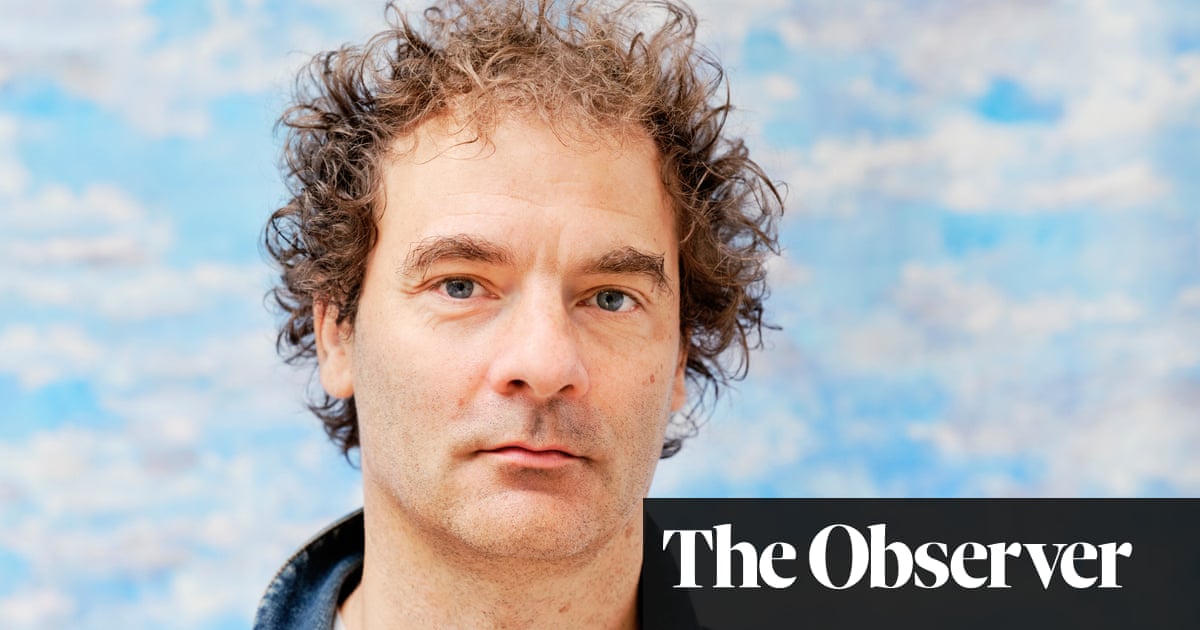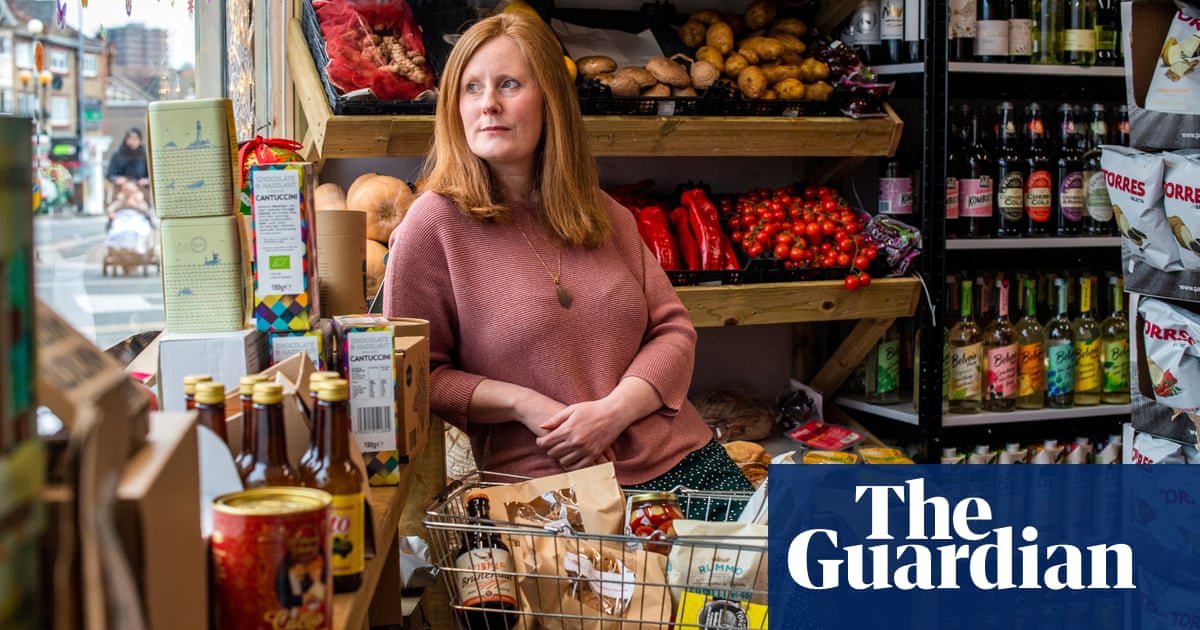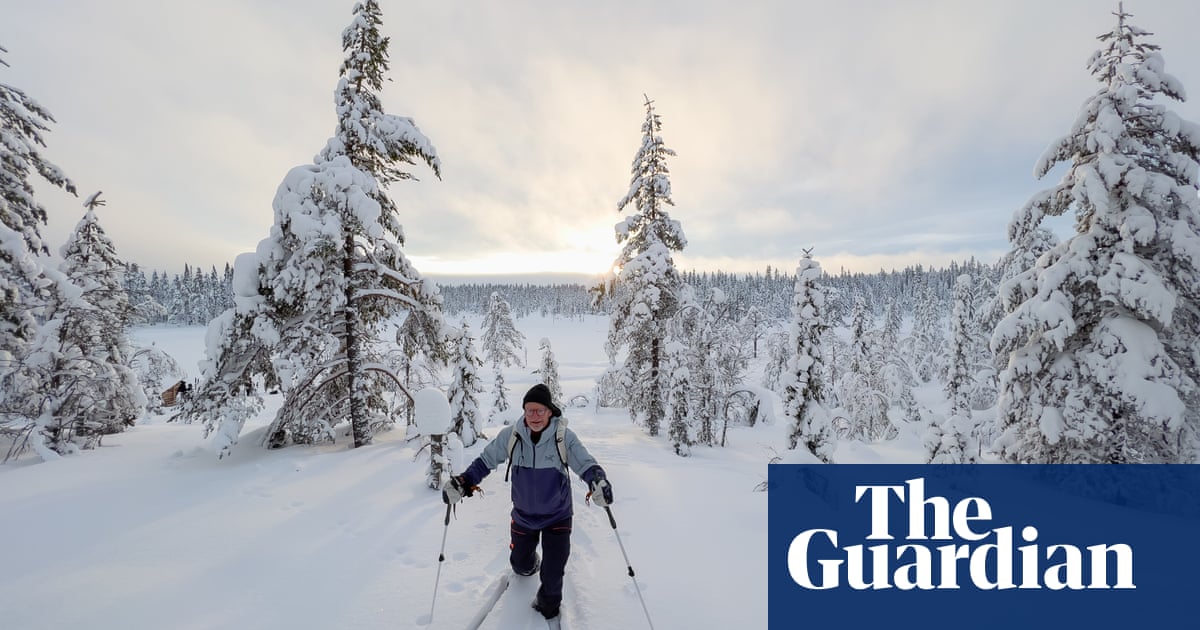
Have you ever felt, “Climate breakdown, argh, oh shite”? And then felt, “But what am I supposed to do about it?” And then spent an hour listlessly researching electric cars, before getting overwhelmed by the whole extinction-level endeavour and doing sweet FA?
My new film, My Extinction, charts my transformation from self-absorbed, guilty, inactive dad to self-absorbed, guilty, slightly less inactive dad. That is, it shows how a journey from total inaction to climate action turned out not to be as radically transformative as I might have supposed. And I mean that in a positive sense.
Before I became “slightly less inactive”, my idea of transformational change involved epiphanies and wholesale conversions. “I was blind but now I see” – that kind of thing. And I especially assumed this was true of climate warriors, whose task – halting the apocalypse, basically – seemed to me to be so impossibly large that I couldn’t even bring myself to think too much about it, let alone add it to my daily to-do list: take kids to school, buy almond milk, save the planet.
I think I must have felt that to really let that knowledge in – emotionally and not just in some passing intellectual way – might doom me to a lifetime tunnelling under petrol depots and chaining myself to oil rigs. Surely real commitment to such a global task would be all or nothing. In which case, well, it was going to have to be nothing. Tied to this basic disengagement, all my other forms of denial worked furiously to defend me: “Is it really so much hotter?”; “I prefer the heat anyway”; “Tech will solve it”; “The government will solve it”; “I recycle”; “I buy almond milk”; “I’m busy!” And the easiest of cynicisms: “It won’t achieve much anyway.” (Spoiler: protest movements do achieve much, as history copiously proves.) Besides, like most of humanity, ensuring planetary survival struck me as palpably less immediate than ensuring my own.
But then, I was moved. It came in bits. One of these was watching Greta Thunberg – a mere child! – address the United Nations. When she told world leaders that “I want you to act as if the house is on fire,” I really felt it. Guiltily, as a dad. I’d now find myself looking at my two children in all their heartbreaking innocence and ignorance – not yet knowing that the world I was handing over was already being shorn of so many of the comforts and securities I’d enjoyed in my own childhood. So yes, Greta – a child who knew more about what was actually happening than the adults did – got to me. Yet when I then decided to visit the XR protests with my camera, I still assumed that, if I was to join up properly, I’d have to go on strike against the rest of my working life – which a child can do, I figured, but a parent surely can’t.
But I soon discovered that instigating change doesn’t have to leave you glued to the M25 or placed on one of the Home Office’s ever-expanding terror lists. And what I also discovered, as I followed my guilt into hanging out with actual, bona fide activists, was that even those who do go that extra mile completely fail the zealot test. Not one of the people I met had gone all Joan of Arc. They were all still themselves: teachers, baristas, architects, management consultants, bakers, students, grandmas – except that they sacrificed one night of Netflix a week to meeting people with similar concerns. And then, with lots of debate about strategy, tactics, ethics, they’d – we’d – try to do something. We campaigned the local council about cycle lanes. We protested outside Defra. We talked nicely to annoying family members. Much of this worked.
And – ineptly, with plenty of cynicism to shed – as I got my hands a little dirty, I discovered I felt a bit better. Yes, I had to open myself up to those disavowed feelings of despair and paralysis. But you know what? I could take it. And in so doing, I started to feel less stymied, less lonely, more effective. Even as a parent. As the psychoanalyst Anouchka Grose told me, children have a way of finding out what it is the grownups don’t want them to know, whether about sex, or death, or the climate crisis. So the other thing getting involved in activism afforded me was the chance to speak more openly with my children about the world I’d brought them into. They were very young at the time, but by speaking with the broadest of brushstrokes, I was actually a much easier-going parent when I stopped pretending that all was well with that world. And I could temper that bad news with news about our ability to change things for the better.
I even introduced one of my kids to the joys of collective action, speaking to other families as they left the Science Museum. About how their terrific exhibitions are sadly funded by fossil fuel giants greenwashing themselves. My child got to find out how some people are really curious to hear things they didn’t know, and others really, really aren’t. Then we talked about why that might be.
Of course, I was also doing all this to assuage my guilt – to be able to turn around to them in 10 years and say: “Sorry about your world, but hey, at least I tried, and here’s the filmed evidence!” Was trying to mitigate climate disaster something I did chiefly to service my own ego? Maybe there’s something to that idea. Because while there surely are genuine altruists out there, that was never going to be me, a monster of self-absorption.
One thing I’ve found out through all this: you get to retain your egotism. You don’t even have to be “worthy”. As you can tell, I’m most certainly not the messiah. But nor am I an especially naughty boy. I drive, I use petrol in my car, but I don’t (currently) own its means of production. Halfway through this process, a crunch moment came when I was offered a much-needed gig – for an oil company. You’ll have to watch the film to see how that conflict went.
Waking up a bit to my own citizenship, though, wasn’t ultimately down to Greta, or Attenborough, or XR. It was down to my sense of personal failure. This film began when another longstanding movie project of mine fell apart and I was thrown into a furious entitlement-fuelled pity party, as in: “What’s the point of killing myself trying to do all this stupid crap anyway, given the world is ending?” A defensive thought at first, for sure. But then, when shared, it became something I started hearing literally. What are we killing ourselves for?
I was in a – some might say typically male – state of rage, impotence and reaction at a system that I chiefly perceived as leading to the extinction of my career, rather than, well, extinction. But it’s precisely this toxic pool of feelings, felt in a culture that makes us all feel failed, that opened the door to change. The key was sharing rather than denying, repressing or acting out on them. It hit me at a protest-training group. A woman, older than me, shared acutely and painfully her impotence, rage and despair at a world that was on course to starve half the global population. Hearing her words made me cry. I was discovering that these same emotions had the capacity to connect us to communities of feeling that take positive rather than destructive action.
I realised that you might just have to despair to care. Admit that and you can recycle those depressions and furies into something more usefully directed, though you need the help of others. To discuss solutions.
I found that there really are things you can do, and they will matter. And nobody got on my case. I was welcome to find my own method, my own speed. Nobody’s asking you to sacrifice yourself either. Instead, you find things you’re already good at, just with a climate-y rewrite, with help from others to make it happen. If you’re a lawyer, you can do something pro bono for a climate charity. If you’re in a corporate position, you can get your company to divest from carbon funds. If you work on the Amazon factory floor, well, it might need to be more on the scale of smashing the robots and rising up with weaponry. I’ll just have to keep making films, albeit more climate-concerned ones.
Most days I still do sweet FA about anything. The buzz of anxiety and irritation and guilt remains. It’s just that I now have somewhere I can go to recycle those feelings. There was no major conversion. Nothing especially radical has to happen for radical change to occur. The climate has its many tipping points, and so, it turns out, do I. If you do take action on the climate, you’ll still be you. You might even enjoy it more.












